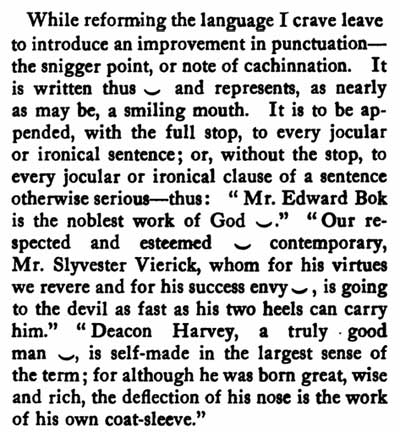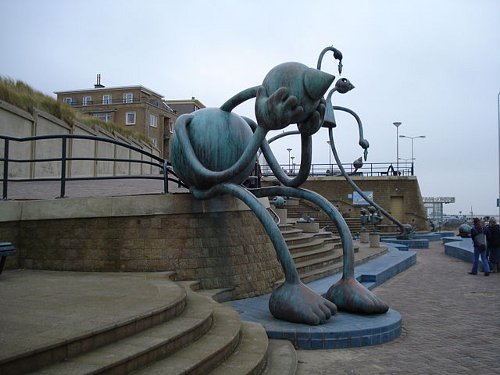
In 1881 Puck published four faces assembled from printing characters and announced that its compositors intended to surpass “all the cartoonists that ever walked.”
Six years later, in an essay entitled “For Brevity and Clarity,” Ambrose Bierce offered a character to make irony clear in written text:

In April 1969, New York Times interviewer Alden Whitman asked Vladimir Nabokov, “How do you rank yourself among writers (living) and of the immediate past?” He answered, “I often think there should exist a special typographical sign for a smile — some sort of concave mark, a supine round bracket, which I would now like to trace in reply to your question.”
(Thanks, Justin.)




